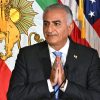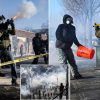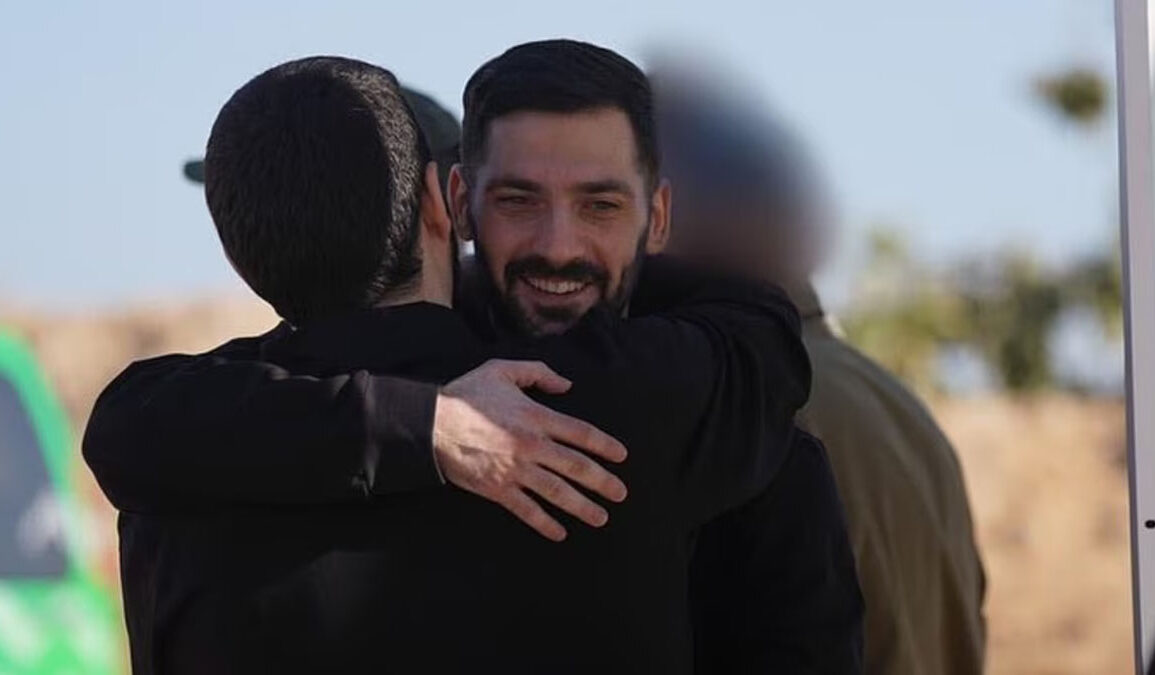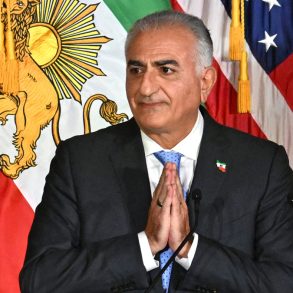A Historic Turning Point
In a moment that may come to define the modern Middle East, all 20 remaining living hostages held in Gaza were freed on Monday, marking the end of two years of relentless war between Israel and Hamas. The release coincided with the arrival of U.S. President Donald Trump in Israel, where he declared to the world, “The war is over.”
The deal, brokered by Trump’s administration after months of quiet negotiations, included a sweeping ceasefire and the exchange of nearly 2,000 Palestinian prisoners for the remaining Israeli captives. It was the culmination of a painstaking diplomatic campaign that began early in Trump’s second term, when he vowed to “end the endless wars” and bring “a permanent peace to the Holy Land.”
The ceasefire, described by Trump as “the historic dawn of a new Middle East,” was greeted with jubilation and tears in Israel. In Tel Aviv’s Hostages Square, thousands of families who had spent two years demanding the return of their loved ones erupted in cheers as news broke that the captives were safe. Israeli television aired footage of the freed men crossing back into Israel under the escort of the Israel Defense Forces (IDF), where they were reunited with their families.
“We gather on a day of profound joy, of soaring hope, of renewed faith,” Trump said in his address to Israel’s parliament, the Knesset. “The skies are calm, the guns are silent, the sirens are still. The sun rises on a holy land that is finally at peace.”
The Price of Peace
Under the terms of the Trump-brokered ceasefire, Israel agreed to release more than 1,900 Palestinian prisoners, including 250 serving life sentences for attacks on Israelis. The exchange took place in Beitunia, near Ramallah, where cheering crowds waved flags and welcomed buses carrying the released prisoners.
In Gaza, the Hamas-run Prisoners Office confirmed that several detainees held since the 2023 war were also being released as part of the deal. Meanwhile, the bodies of 28 hostages who had died in captivity will be returned to Israel over the coming days, including four individuals identified as Guy Iluz, Bipin Joshi, Daniel Peretz, and Yossi Sharabi.
Trump praised the agreement as “a triumph of diplomacy, courage, and faith,” saying that “after so many years of unceasing war and endless danger, this land can now live in peace for all eternity.”
Israeli Prime Minister Benjamin Netanyahu, addressing the Knesset shortly after Trump, hailed the day as “momentous.” “At the beginning of the war, I promised to bring all the hostages home,” he said. “Today, with the indispensable help and unremitting efforts of President Trump, we have fulfilled that promise.”
What Led to This Moment
The war began on October 7, 2023, when Hamas terrorists launched a surprise assault on southern Israel, killing 1,200 people—mostly civilians—and taking 251 hostages. Israel’s military response devastated Gaza, leading to more than 67,000 Palestinian deaths according to Gaza’s Health Ministry, and displacing nearly 90 percent of the enclave’s two million residents.
The scale of destruction drew global condemnation and deepened Israel’s diplomatic isolation. As the humanitarian toll mounted, Trump’s administration stepped in to mediate, using both U.S. leverage and regional influence to bring the sides to the table.
The turning point reportedly came during backchannel talks in Cairo and Doha earlier this year, when Trump’s special envoy Steve Witkoff, Secretary of State Marco Rubio, and senior adviser Jared Kushner negotiated the framework for the ceasefire. Kushner, who had previously helped forge the Abraham Accords, was instrumental in bringing Egypt, Qatar, and Jordan on board to support the plan.
Families Reunited, A Nation Breathes Again
As the freed hostages returned, scenes of emotion filled Israel. The IDF released photos of reunions, including 28-year-old twins Gali and Ziv Berman embracing after being held apart by Hamas for nearly two years. “It is the miracle we prayed for,” said one family member at Ichilov Medical Center, where the hostages underwent medical evaluations.
Trump, who met with several of the freed families, said their suffering had been “unbelievable” and that he had prayed for their release from the beginning. “What you’ve done is a miracle,” he told Israelis. “Look at your size, look at your chances when it all started. You are safer today, stronger today, and more respected today than at any time in the history of Israel.”
The Knesset Erupts in Applause
Trump’s address to the Knesset was met with prolonged applause and chants of “Trump! Trump!” from lawmakers and spectators. Some in the audience wore red caps emblazoned with “Trump, The Peace President.” The session was briefly interrupted by a protester, whom Trump dismissed with humor, saying, “That was very efficient.”
Knesset Speaker Amir Ohana praised Trump as “a giant of Jewish history,” and announced that Israel would nominate him for the Nobel Peace Prize. President Isaac Herzog later confirmed that Trump would receive Israel’s Presidential Medal of Honor, the nation’s highest civilian award.
In his speech, Trump thanked Netanyahu for his “exceptional courage and patriotism,” adding, “You’ve won. Now it is time to translate these victories on the battlefield into the ultimate prize of peace and prosperity for the entire Middle East.”
The peace deal outlines a multi-phase plan for Gaza’s future governance. An international body will temporarily administer the territory, while an Arab-led security force trained by Egypt and Jordan maintains order. The plan calls for eventual Palestinian self-governance through reformed leadership within the Palestinian Authority.
Trump emphasized that the agreement was not simply about ending one war but about transforming the entire region. “This is not only the end of a war,” he said. “This is the end of an age of terror and death and the beginning of the age of faith and hope and of God.”
He also made overtures toward Iran, declaring, “The hand of friendship and cooperation is always open. We merely want to live in peace.” While Iran declined to attend the upcoming peace summit, Trump said he believed Tehran was “tired” and ready for change.
On to Egypt
Following his Knesset address, Trump departed for Sharm el-Sheikh, Egypt, to oversee the signing of the ceasefire agreement and lead a summit of more than twenty nations on the region’s future. Egyptian President Abdel-Fattah el-Sissi will co-host the meeting, which includes Palestinian Authority President Mahmoud Abbas and leaders from across the Arab world.
Netanyahu, citing the Jewish holiday of Shemini Atzeret, declined to attend but voiced his support for the process. “We are beginning a new chapter,” he said in a statement. “And it would not have been possible without President Trump.”
For Trump, the moment marked both a political and moral victory. Having been derided by critics as a provocateur, he now stood as the architect of a ceasefire that ended one of the bloodiest conflicts of the century. As he told Israeli lawmakers, “This will be remembered as the moment when everything began to change—and change very much for the better.”
For the people of Israel and Gaza, the hope is that this time, the peace will last.
NP Editor: This is an historic day certainly, but I don’t trust Hamas, and it may have been a bad idea releasing 1900 terrorist back into the wild. But hope abounds.








